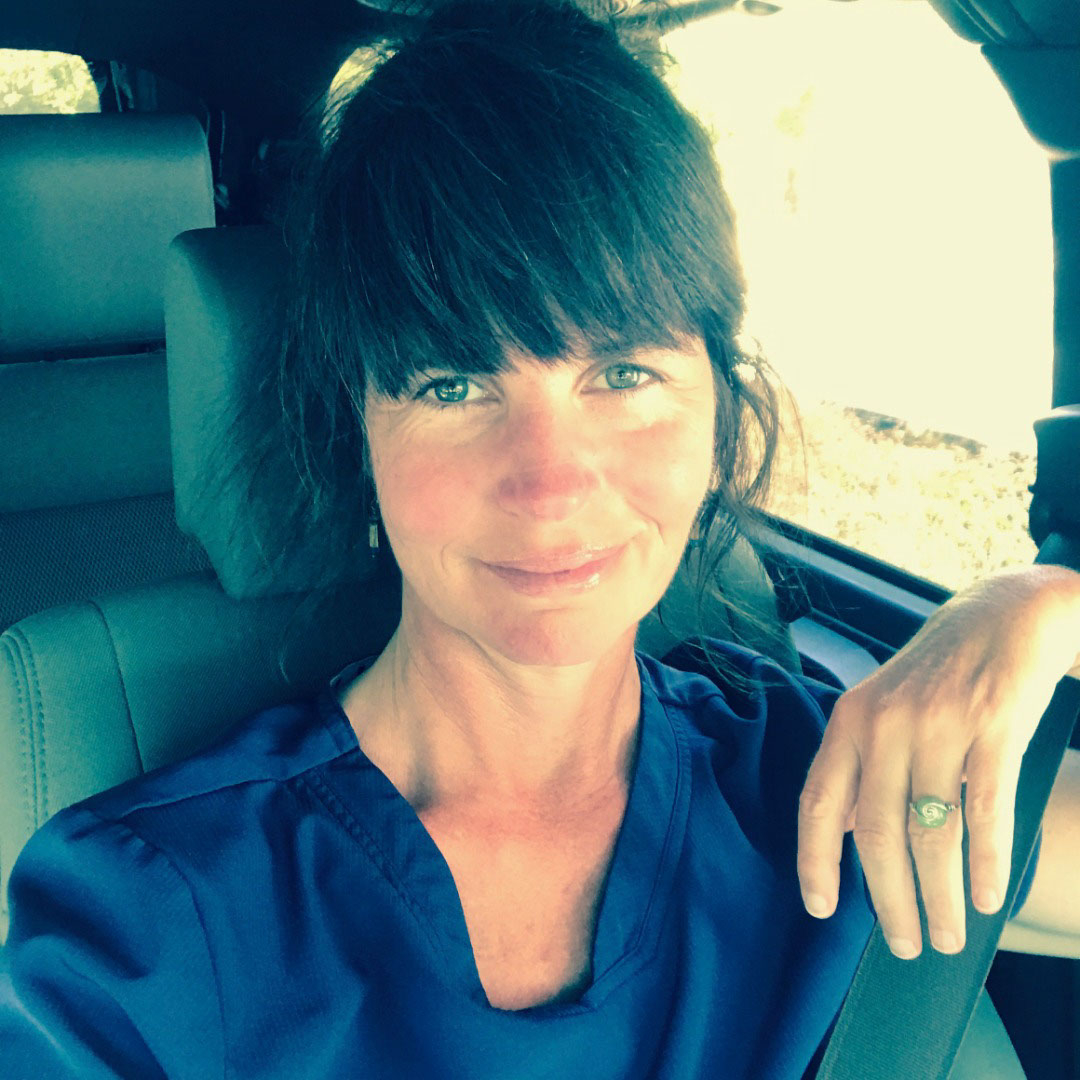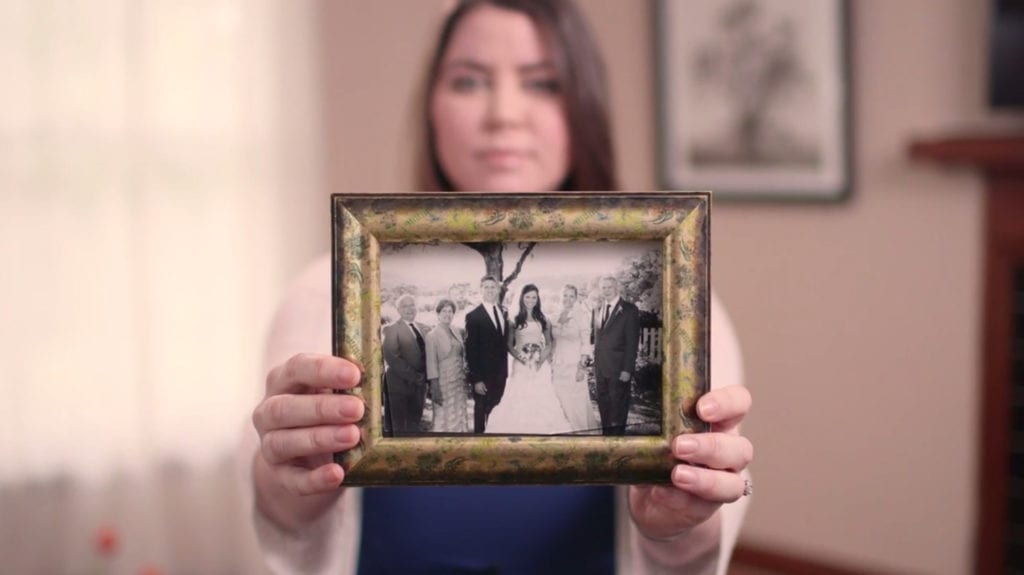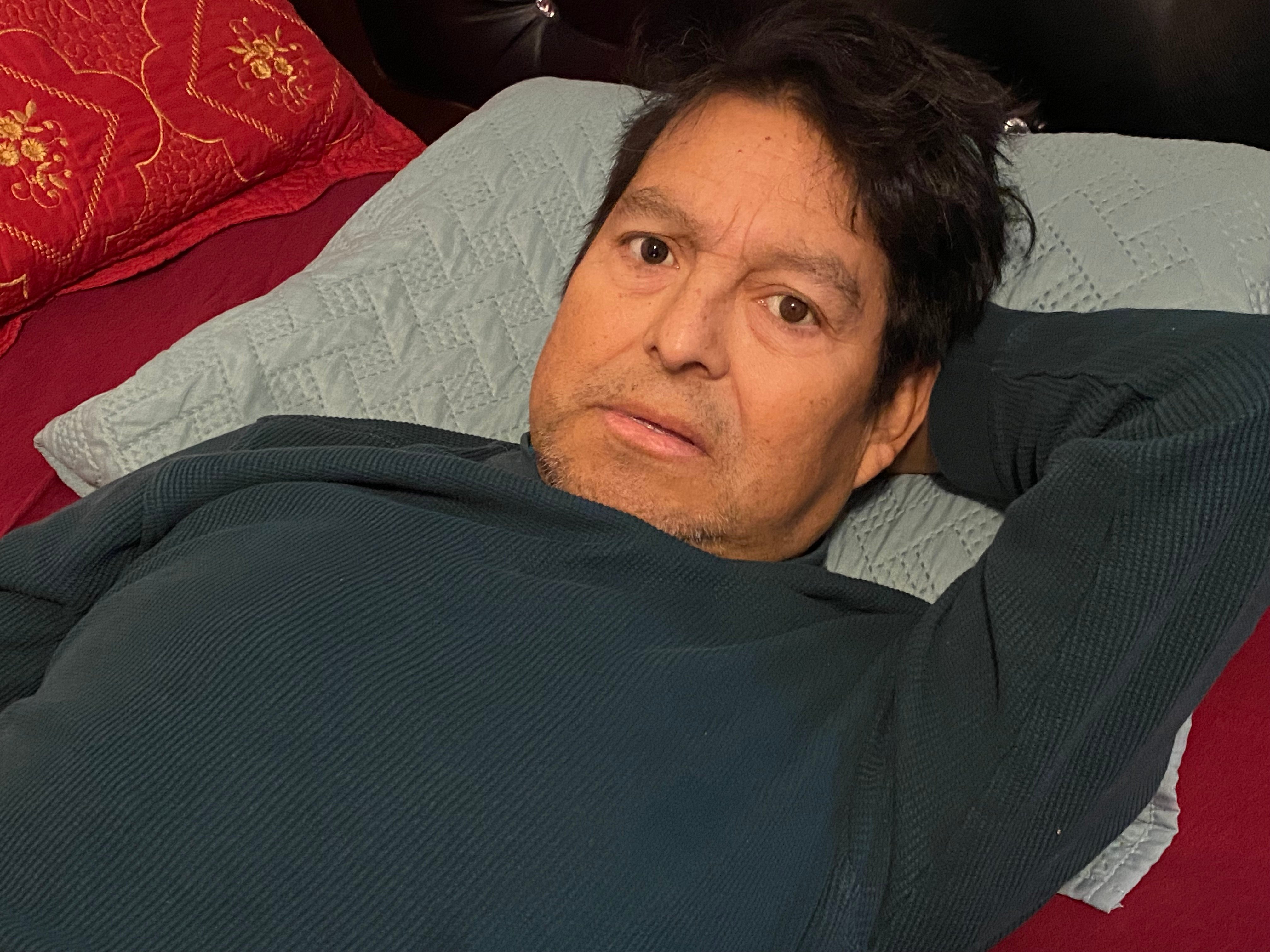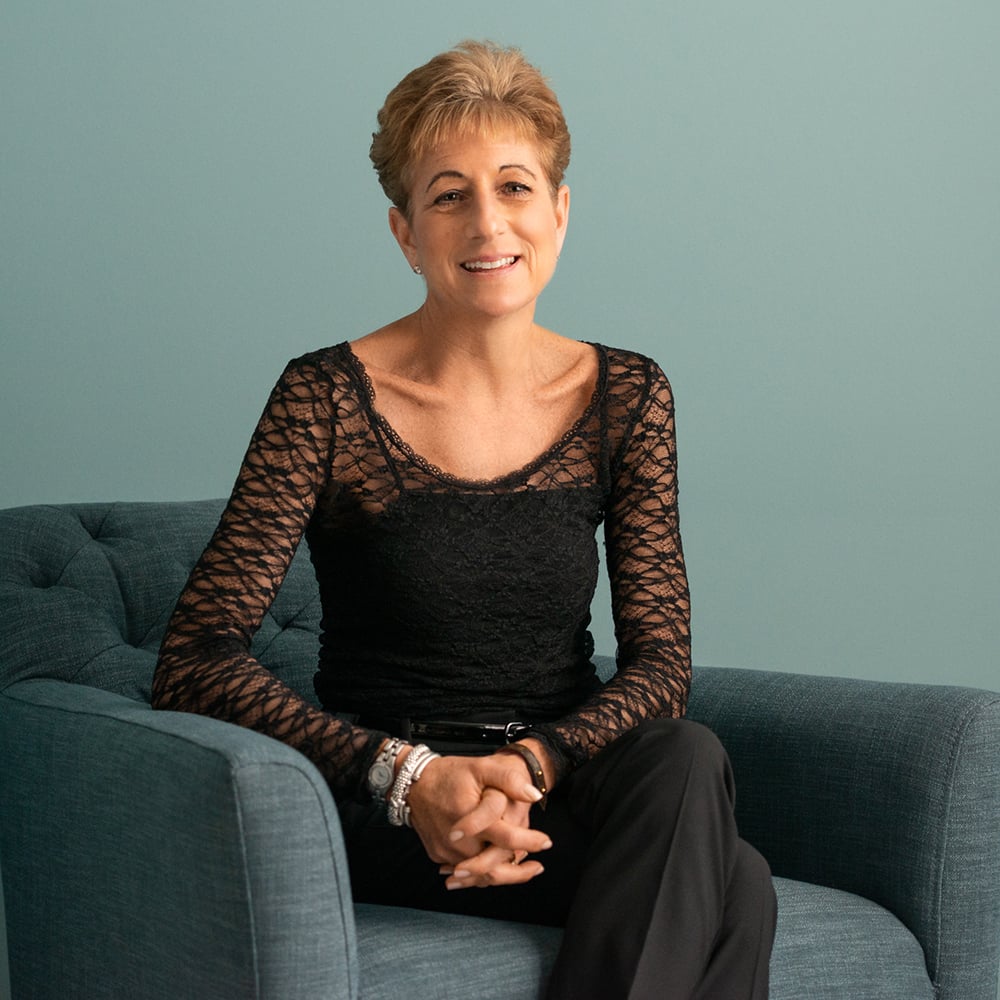Tara Lee shared her story in April of 2023.
I’ve been an ER nurse, a hospice nurse and now an end-of-life doula. And in the past two years, I lost my mom and my cousin, both unexpectedly. I’ve seen enough death that promoting advance directives and ongoing conversations about end-of-life wishes has become a quest of mine.
My 15 years in the emergency department was a great experience, but in the acute situations in the ER, you either “fix” or “don’t fix.” I didn’t really learn much about how to care for a dying person until I got into hospice care. From the start, I bonded fiercely with one of my first hospice patients and his wife. All he wanted to know was that his wife would be cared for in their home when he was gone. I promised him she would, and after his death she became like my adopted grandma: I took her to all her doctors’ appointments, and when she passed six years later in the same room where her husband died, I was there.
Through all those doctors’ appointments, not one time did her physician ask her about her wishes. It was in spite of this that she updated her advance directive and shared it with me and others so that when her time came, it was clear what she wanted. When she died in 2019, knowing her wishes for her end-of-life care made the process more bearable for her and for me.
I decided it was important for me to talk to my mom about that experience. Mom was my best friend — she had me when she was only 16 years old, so we grew up together in a way. Determined to make it work, she managed to still graduate high school while caring for me and holding down a job. She was a very independent person, but also very giving. I never wanted for anything with her.
When I brought up the idea of advance directives and power of attorney for healthcare with her and her husband in 2019, we talked a lot about quality of life and how important independence was to my mother. She had seen how miserable her own father was in a skilled nursing facility and didn’t want that for herself. She completed several advance care planning documents, including a do-not-resuscitate (DNR) order as well as a do-not-intubate (DNI) directive.
When tragedy shook our family less than two years later, we saw how hard things could be without those documents or conversations.
My cousin Holly and I were like sisters growing up. Born with spina bifida in 1981, Holly underwent dozens of surgeries throughout her life. But she didn’t let her time in and out of hospitals and rehab slow her down. Any place I’d move, she’d come visit me, and we’d go see a country music show together. She lived independently and had the same job for 20 years at the local college radio station.
In February 2020, Holly started getting lymphedema in her legs. She couldn’t maneuver in and out of her wheelchair as she had before. That winter, a fall out of her chair led to a trip to the ER and another stint in rehab starting in March 2020 — when the pandemic hit. After many isolated months in the rehab facility, in January 2021 Holly was sent to the local hospital because she was short of breath. She had acquired a pressure injury due to lack of care at the rehab facility and was in full-blown sepsis.
Over the next 21 days, Holly had seven surgeries. She was intubated and was given a trach and a colostomy. Finally, acute respiratory distress syndrome (ARDS) set in. It was terminal, and was only going to get worse. She couldn’t survive without the ventilator. Meanwhile, the doctors were struggling to keep her comfortable. In the end, her mom finally decided to have Holly extubated, which was itself a traumatic experience for all of us who were there to witness her agonal respirations before she died.
For me, the takeaway from all of this was that all the incredible work Holly’s medical team did at the hospital was too late to remedy the negligence Holly had experienced in the 10 months while she was at the rehab facility. On top of that, as just a 40-year-old woman, Holly had never completed any advance care planning documents, which left her family to make hard decisions without having the reassurance of Holly’s stated wishes.
We all grieved Holly, especially my mom. Her death seemed to hasten my mother’s own decline. At 67, my mother, a former smoker, had COPD. But she had been able to lead a fairly normal life over the past few years. In January of 2021, she had an echocardiogram that showed her heart functioning at 65% — a great number. There were subtle signs, however, that I and her healthcare providers chalked up to her COPD: She was short of breath, she needed oxygen at night. We assumed her lungs were just spent after smoking for 50 years.
When Mom went in for outpatient gallbladder surgery on August 11, 2021, there was no apparent reason to do another echocardiogram. But the surgery that was supposed to take only an hour went on for much longer. The doctor eventually emerged and said, “There’s been an event.” They thought my mother might have a blood clot. Her ejection fraction — the amount of blood the heart pumps with each beat — had dropped to 10%, a number incompatible with life.
The doctors did everything they could — continuous dialysis, every organ support possible. But after a few days, Mom was no longer responsive. The palliative care team sat us down to review our options. My mother had been intubated during the surgery, so the question before us was whether or not to remove the ventilator.
I knew Mom could be on the ventilator for months on end. Because of her advance directive and the conversations she and I had had, I also knew that Mom would not want this, ever. I had to accept that this was not about me, but about honoring her wishes.
On August 18, we decided to extubate her and remove life support. She passed within five minutes.
If Mom had not had her DNR and DNI already, it would have made the dying process much harder for all of us. But having that document confirmed her wishes. Now I keep an up-to-date advance directive myself and talk about this with my children. If I have a nonreversible condition that would leave me debilitated, I want nature to take its course. I want to be at home. I don’t want extensive interventions.
Witnessing people, including my own loved ones, suffer in the hospital for weeks or months has really turned me into an advocate for preparing for the end of life. There’s so much you can control that people don’t realize; you have the right to refuse treatment. But it’s an uphill battle in a system that protects the pulse over all else. I just want to help people see that sometimes there are things worse than death — many, many times worse. I don’t know if I’ll ever fully recover from the loss of my mother and my cousin, but I’m sharing my story in the hopes that someone else can benefit from the lessons of their last days.






